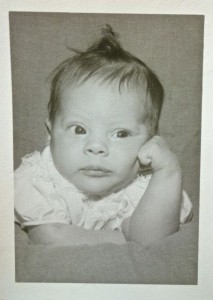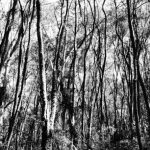New Beginnings
In ” The meaning of human existence” Edward Wilson (2014) argues that we are the product of our evolution. Although Wilson is a reductionist through and through, believing in no divine plan, no transpersonal meaning other than our own inherited biology, it is an interesting philosophy to explore in terms of who we are. Although my own experience may be at logger heads to Wilson, let’s not get caught in an argument about whether the transcendent exists, independent of a biological misfiring of our brain. Instead, let’s look at these stories we carry within us, and what that may mean for our lived-experience.
Here is little Lara, born of two parents, inheriting all the cultural, emotional, biological and psychological inheritance of those two people…and all the people who came before them. If these experiences are coded in her genetic heritage, as modern genetic research is indicating, then even at this early age, her life was potentially driven by her ancestral stories and impulses without her awareness. Jung refers to the “collective unconscious” as a library or memory bank inherited by each human being. This memory bank includes all the possible experiences of living things, (and some non human things but I’ll leave that for another time). Jung’s concept is not all that dissimilar from Wilson (although Wilson would be appalled by the comparison). Wilson would argue that we evolved from dust, via algae, simple organisms, up the evolutionary scale to Homo Sapiens. Within us, either explained the by reductionist or Jungian theory, are a lot of interesting experiences, many many narratives, human and otherwise.
While that may be rather mind boggling, being a practical person, what does it mean and how does it influence how we live now? If we are governed by our stories, if the knowledge gained by our ancestors (or perhaps the things not learned) are driving forces in our lives and our perceptions, then surely it is to our advantage to know ourselves and become aware of these stories.
Wilson’s premise is that we are alone, vulnerable and self-made. Hence, he argues, our long-term survival as a species requires intelligent self-understanding. While my premise may not be consistent with Wilson’s, I’m really surprised to find I agree with him in some ways. Intelligent, self-understanding, I believe, is imperative for the survival of human beings and also to enhance the survival of our planet and the other living things we share it with.
So how do we start to know ourselves? It may pay to know the stories of our immediate ancestors. Those inherited stories that we shun when we are young, do our best to escape from as we become adults, lovers, parents, bosses, grandparents; live within us. Unless we bring these narratives to consciousness, they will most likely play out in our lives, cycling through generations, inflicting patterns and wounds again and again.
Families may be split, grief buried and inherited, cultures, people and ideologies may be lost through migration and death, trauma and ignorance. These stories are in our genes, waiting to be triggered by our life circumstances. At any stage we can seize these threads and weave them together, not to “solve them” but to “hold them”. In doing so, perhaps we can be self-understanding and independently govern ourselves through mindfulness and conscious choice. My feeling (and experience) is that such self-determination can lead to greater happiness and independence.
I’d be curious to hear your thoughts should you wish to share them,
Lara
Recommended Posts





